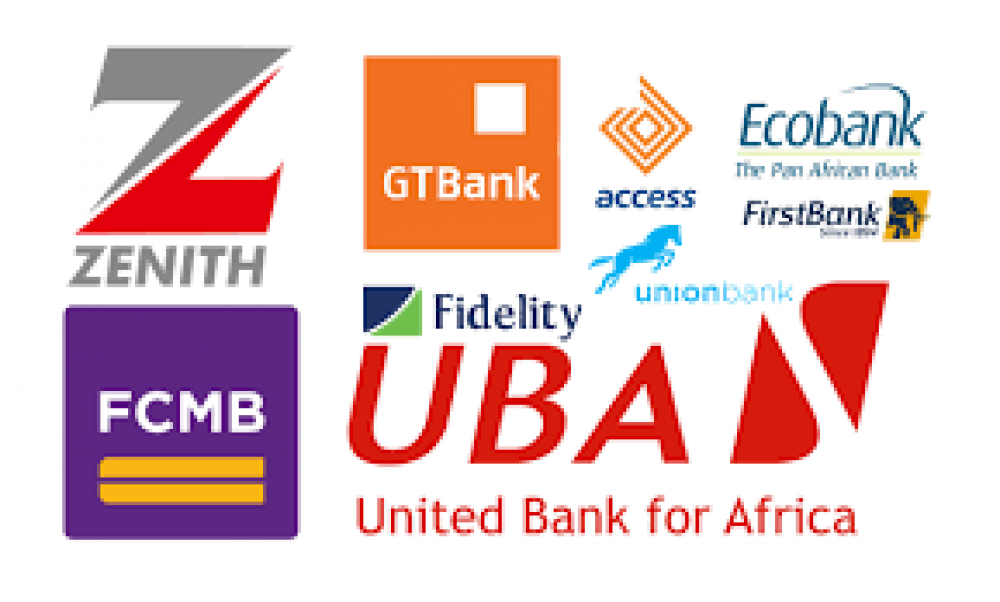Other Pages
- Opinion Poll
- About Us
- Send Your Story
- Contact Us
- Newsletter
- Privacy Policy
- Terms and Conditions

New findings has shown that interest paid by banks on their customers' deposits or savings significantly dropped for four of the top Nigerian banks in Q3 2020, with only one of the top banks increasing its Interest Income for some of the customers' funds used by banks for investment purposes.
Also, AllNews gathered from a deep dive that four banks recorded a reduction in their interest payable on borrowings by companies or individuals, while one bank experienced an increase in its Interest Expense within the period tracked. The findings was discovered from the financials of five of the biggest banks in Nigeria.
These banks include Access Bank, Zenith Bank, Guaranty Trust Bank (GTBank), First Bank and United Bank for Africa - all of which are referred as the FUGAZ banks. These banks control the major earnings of Nigeria's financial market. The FUGAZ banks account for the majority of the market shares based on income and customer-size, while the other banks are left with crumbs. This is why AllNews focused its research on the FUGAZ.
READ ALSO: CBN Clarifies Bank Directive For Domiciliary Accounts, Forex Accessibility
Among the five top banks, GTBank recorded the lowest Interest Income which customers earn on their savings in banks. GTBank recorded NGN69.05 billion as the amount paid to customers as interest in Q3 this year, falling by 5.2% when compared to the NGN72.90 billion GTBank reported for 2019 third quarter. (Interest Expense: NGN34.09 billion Q3 2020/ NGN35.22 billion Q3 2019)
First Bank came next on the top five list with NGN90.29 billion which the lender paid out as Interest Income in Q3 2020. This amount was -12.1% lower than the NGN102.80 billion First Bank recorded during the corresponding period of last year Q3. This means First Bank's Interest Income fell the highest among the FUGAZ bank. (Interest Expense: NGN28.83 billion Q3 2020/ NGN40.96 billion Q3 2019)
AllNews gathered that Zenith Bank disbursed NGN101,866 billion as Interest Income during the third quarter of this year, falling short by -5.09% when compared to the amount recorded during the same period last year which is NGN107.33 billion. Zenith Bank had the fourth highest decline. (Interest Expense: NGN34.09 billion Q3 2020/ NGN35.22 billion Q3 2019)
Access Bank also recorded a decline in its Interest Income this year's Q3 when compared to the NGN123.07 billion the company recorded during the third quarter of 2019. Access Bank reported NGN105,680 billion as its Interest Income for Q3 2020; this is a difference of -14.1%, making Access Bank the second bank with highest drop among FUGAZ. (Interest Expense: NGN58.49 billion Q3 2020/ NGN77.05 billion Q3 2019)
READ ALSO: Nigerian Govt’s Consumption Rises Significantly As Households Consumption Drops
Note: AllNews gathered that only UBA grew its Interest Income for the period under review, rising to NGN111.55 billion in 2020 Q3, from the NGN93.01 billion the lender reported last year third quarter: This represents a decline of 19.9% when both quarters of 2019 and 2020 are compared. (Interest Expense: NGN44.85 billion Q3 2020/ NGN44.22 billion Q3 2019)
The financial industry in Nigeria is not monopolised, so customers have several bank institutions to choose from, but regardless of the competitiveness in the banking sector, savings interest is not attractive due to regulatory oversight by the CBN. The banks don't use savings interest as a call to action for customers, rather, betting on competitive interest rates on loan to grow their customer base.
Despite the complaints against the low savings interest by customers, the CBN has continued to make saving less attractive. At the start of September, which is one of the three months of Q3 (July to September), the CBN further reduced the interests on savings, cutting it down to 1.25% from the 3.9%.
The CBN made the reduction to discourage savings, and force account holders to spend or invest their money into the Nigerian economy. The apex bank want credit flow to increase in the real sector, so it had been making policies to improve borrowing culture among Nigerians that shy away from loan due to high interest rate attached to debt.
For years, bank interest rate has been behind the many dispute between customers and Nigerian commercial banks, and with the September directive from CBN to banks, the disagreement will not end anytime soon - because while savers are being paid less interest, the banks, using the money of savers, are charging higher interest on loans.
This has created a gap between traditional banks and their customers, and technology-enabled savings platforms (Fintechs) are taking advantage of this confrontation by offering more interest rates on savings. Fintechs, with core focus on investment and savings, are operating like banks - use the money of their account holders for investment - but offering higher interest rates.
With this operating model, Fintechs have been able to capture thousands of underserved individuals, making returns from the underbanked community that banks have for years ignored. Fintechs are now coming for the customers of the traditional banks, to switch customer loyalty with their attractive offer.
0 Comment(s)